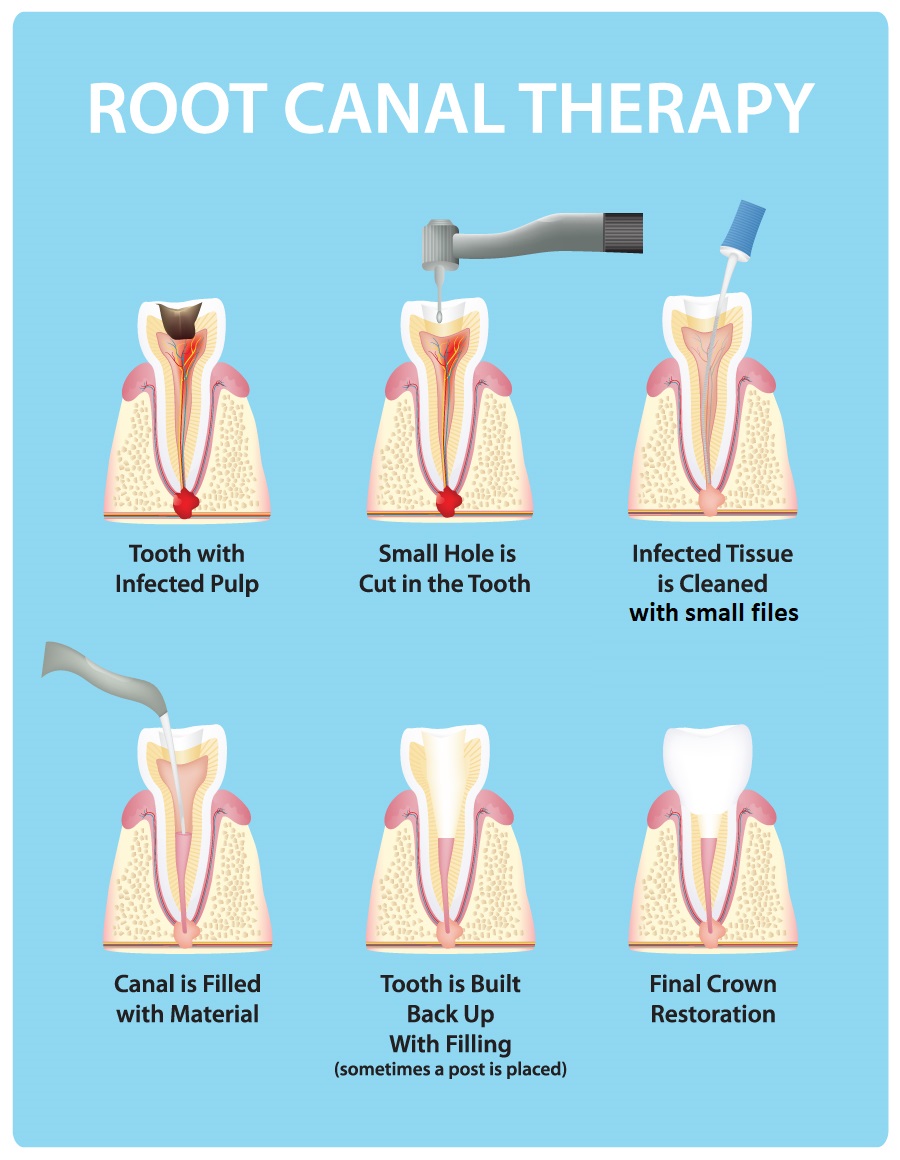
Root Canal Therapy
At Cameo Dental, we love teeth, and we want you to keep yours! A root canal is a simple procedure that can save your natural tooth.
A root canal is necessary when the pulp (the nerves and blood vessels on the inside of the tooth) become infected due to deep decay, cracks in the tooth, or injury. Signs that a tooth may need a root canal include pain and swelling, extreme sensitivity to hot or cold, severe pain when chewing or applying pressure to the tooth, pain that happens by itself, or pain that wakes you up at night. However, our teeth aren’t always great at telling us when something is wrong, and sometimes an infected tooth doesn’t have any symptoms at all! Your dentist may find out that a tooth is infected by looking at an x-ray, or by observing the soft tissues around the tooth.
Will it Hurt?
The thought of a root canal might make you cringe, but many patients are pleasantly surprised by how simple and comfortable the procedure is. In fact, when a patient shows up to our office in pain, the procedure can provide immediate and welcome relief!
Your dentist will use an individually tailored combination of topical and local anesthetics to keep the procedure pain free. We also offer nitrous oxide sedation in each of our treatment rooms if you’re feeling a little nervous.
How is a Root Canal Performed?
A root canal is completed over one to three visits. Once you are numb and comfortable, all decay, compromised tooth structure, and old restorations are removed. A small hole is made in the crown of the tooth to access the root canal space, where the nerves and blood vessels are. Your dentist will use special instruments and rinses to clean the infection from the inside of the tooth, removing the nerves and blood vessels in the process. Once the root canal is free from infected tissue, your dentist will fill it in with biocompatible material.
After a root canal is finished, a final restoration is needed to protect the tooth and seal the inside from bacteria. Sometimes this is just a small filling in the opening of the tooth, sometimes a full coverage dental crown is needed. Posterior teeth that have been root canal treated almost always require a dental crown. This is because they are subject to heavy forces and are prone to fracture. Sometimes, in the case of a severely damaged tooth, a fiber post is placed inside of the canal to help attach the crown to the tooth.
Our dentists are trained and experienced in providing high quality root canal therapy for our patients. For more complex cases (like teeth with many canals or irregularly shaped anatomy), you may be referred to a root canal specialist called an endodontist. We maintain strong relationships with a highly qualified network of experienced endodontic specialists in the area.

 Cameo Dental – Family Dentistry in Rosemount Minnesota
Cameo Dental – Family Dentistry in Rosemount Minnesota